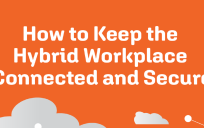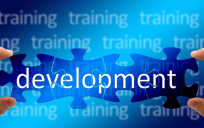I’ve worked with online communities in one form or another for most of the past 15 years. They’re a powerful thing. And, through the use of social media tools and social networks empowered by hyperconnectivity, they have the capacity to make a significant difference in the world.
So, why are so many people (especially the media industry and the ad/marketing/PR folks), several years into this ®evolution, still obsessed with the tools — Facebook, Twitter, LinkedIn, Tumblr, whatever? I see it every day: we need more followers, how many people retweeted us, how many Likes, etc., etc., ad nauseam. Remember those awful “big social media numbers” videos? Kill me now.
Of course, there have been times I’ve been as big a cheerleader as any for aspects of the tech. Mea culpa.
I’ve had the very great privilege to be a participant at the start of something amazing. I guess I’m something of an elder amongst the Australian (and global) social media communities; especially those bits of the community that have a focus on the benefits offered to using social networks and social media tools within government and business.
But now, the thing I’ve been evangelising for years is commonplace. “We need to get people to collaborate!” Social intranet. “We need to get our message out!” Social media profiles. “How do we communicate management views to staff and customers?” Blog!
Now, all these are actually legitimate choices. Absolutely. And you should probably do them. But take a breath first. You don’t need a social media certification. You don’t need to buy followers and likes (you especially don’t need this). You don’t need to find the guruninjarockstar social media expert (with 125,000 of them, they’re as common as muck) who’s just added it to their LinkedIn profile.
There’s so much used car salesman in the social media industry today, it makes me cringe.
But there is a better way. Look at some of the important words I’ve used above. “Worked with communities”, “powerful”, “empowered”, “difference”.
I’ve been lucky enough that the majority of my work with people online has been about exactly that. People. Communities. Empowerment. Most of it’s been with government, where more often than not, there’s nothing to sell, and so much that can be learned. It’s a beautiful thing when you see someone, especially someone senior, have that moment where they realise that their work just got a whole lot easier because they could now connect directly to the community they need to server and understand. Usually that work got a whole lot harder too; it’s never easy to have a 24x7x365, highly engaged focus group in play on your particular policy or program.
So, to the title of this post.
Nothing that we do with online communities can’t, in effect, be done on 3×5 index cards. The tools are not the answer — they’re merely the scaffolding to make great things happen; it’s just potentially a whole lot easier online. I don’t want you on Twitter, or Facebook, or LinkedIn, or blogging. I want you talking with people. I want you building and nurturing community. I want you gathering valuable data to make your policy, program or information better.





Agreed – it’s not the tools! It’s the same as it’s always been – Why are you reaching out? Who do you need to reach? And how will you reach them? Social media is just one part of it…and it needs to tie back to your original outcomes…and sometimes point people to even more traditional forms of engagement, like in-person meetings and events!
My latest post: https://www.govloop.com/profiles/blogs/from-town-hall-to-twitter-do-…
I’m no expert…but I’ve definitely learned from experience that social media isn’t everything….it’s just one more vehicle that puts you in places where you can build relationships…hopefully with people that you won’t otherwise meet and trying to meet them in places where they conduct their daily lives.
Bravo! Well said. Along those same lines, I’ve often thought it was too bad that we got stuck with titles like “Web Manager” and “Social Media Director” because those words focus on the “how” – not the “what.” I wish we would get out of the delivery lanes and get into the product lanes: Communications Managers or Customer Service Directors. Great blog post, Stephen!